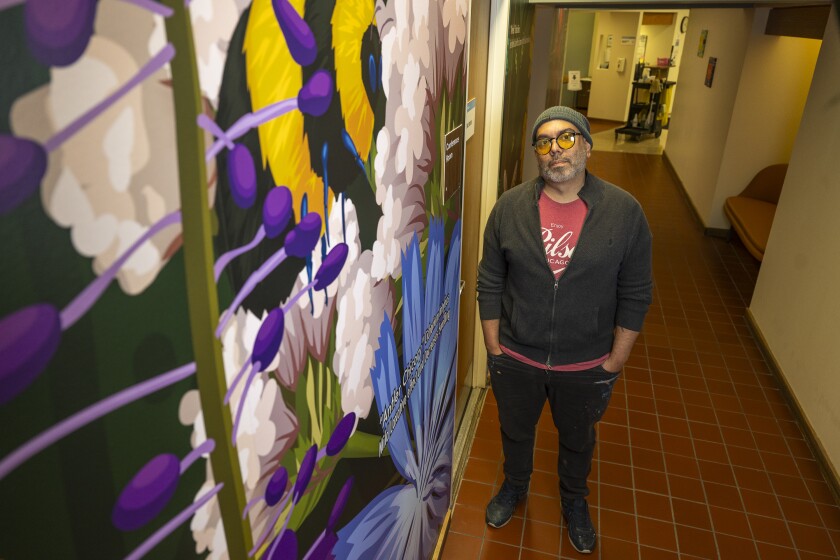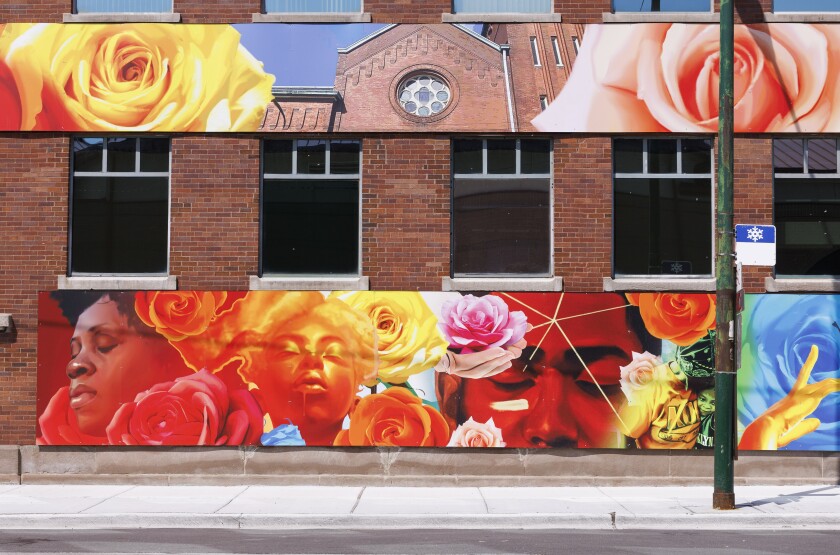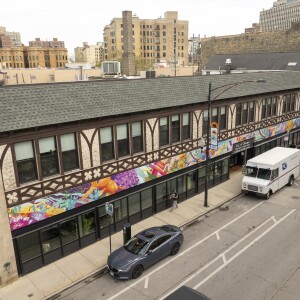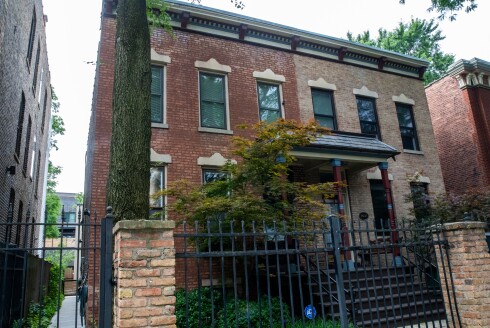When Tammy Rutledge took over as head of Chicago’s specialty public health clinics in 2022, she realized immediately they needed a vibe shift.
In Lake View, hard plastic chairs hadn’t been replaced in at least 25 years. Old, haunting posters about sexually transmitted infections hung from tape on the hallway walls. Piles of condoms, dental dams and other prophylactics rested on a rickety cart.
“I called it the hallway of gloom,” Rutledge says.
The situation at the Roseland clinic wasn’t much better, she says.
So Rutledge ripped down posters, replaced furniture and renamed the offices from STI Specialty Clinics to Lakeview North Clark Street Health Clinic and Roseland East 115th Street Health Hub. The Roseland location also offers mental health and immunization services.
Along with that rebranding, Rutledge worked with Chicago’s Department of Cultural Arts and Special Events to commission murals for the front facade and inside walls at both clinics.
Now, “what I see in both of our spaces is, the clients seem a lot more relaxed. We haven’t had those altercations we used to have sometimes, with people being all uptight and loud. They come in, we have magazines, they’re sitting down, they look at the art and say, ‘Oh, this is really nice,’” Rutledge says. “They sit on the sofas, and you can tell the temperament is very, very different.”
Artist Caesar Perez of Pilsen created the Lake View murals, while Max Sansing of Woodlawn crafted the murals in Roseland.
In Lake View, the inside walls feature brilliantly colored flowers, herbs, medicinal plants, bees, dragonflies and a field mouse with a heart-shaped nose.
The bright imagery stretches floor to ceiling, with phrases describing what the traditional medicinal plant is and how it is used. Those include “ ‘Alfalfa’ Medicago Sativa/Help Lower Cholesterol and Blood Sugar Management” and “ ‘Jacobs Ladder’ Palemonium Caeruleum/Helps Wounds Heal Faster,” for example.
Perez often uses elements of nature in his work, so the medicinal plants were a natural inclusion.
He sought “to show people that these plants are from nature, and they’re made to help you heal. I like the combination of Eastern and Western health philosophy: You eat properly every day and maintain it by getting checkups and stuff like that.”
On the facade of 2849 North Clark St., a mural stretches like a banner across the entryway and front windows. The flowers bloom on that mural as well, with birds clutching ribbons and sweeping across them. The colors morph from the brilliant jewel tones to the pastel colors included in the Progress Pride Flag.
Rutledge says she appreciates the unique ways Perez displayed the animals in his artwork. For example, “he would have a tiger flying in the air and a bird in the water,” symbolizing the individualism of people living in Lake View.
In Roseland, Sansing shared childhood memories of driving by the building at 200 E. 115th St. with his mom from their home in nearby Avalon Park.
For his mural, both inside and out, he included a spectrum of the colored roses that earned the neighborhood its name. He also added the field house from nearby Palmer Park and a window from Roseland’s Greater Tabernacle Cathedral, a Chicago landmark and the place where former President Barack Obama served as executive director of the nonprofit Developing Communities Project.
Faces resembling those from the neighborhood and others that Sansing knows gaze out from the front facade.
Sansing also included images of a key, which often can be found in his artwork: “A lot of my work deals with coming to a crossroads in your life and deciding which door to unlock to go forward,” Sansing says.
The key has a personal meaning as well. It’s Sansing’s father’s CTA key from his time working as an L train engineer when Sansing was a kid. After his dad died, Sansing kept that key.
“He would open up all these doors, and I thought it was so cool: Black man got a key to the city.”
Of the images he chose, Sansing says, “I wanted something to calm the anxieties. This is a place where we’re finding out what’s going on with you, but also people can help and understand your circumstances. There’s people who are familiar with whatever’s going on with you there. I think that’s needed, especially in communities like Roseland.”

















